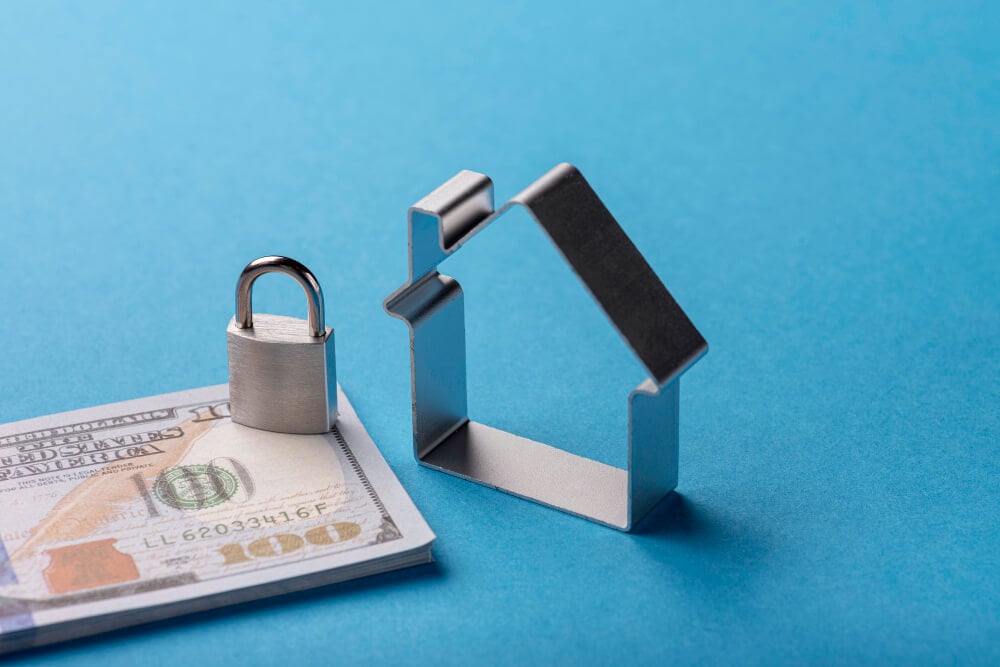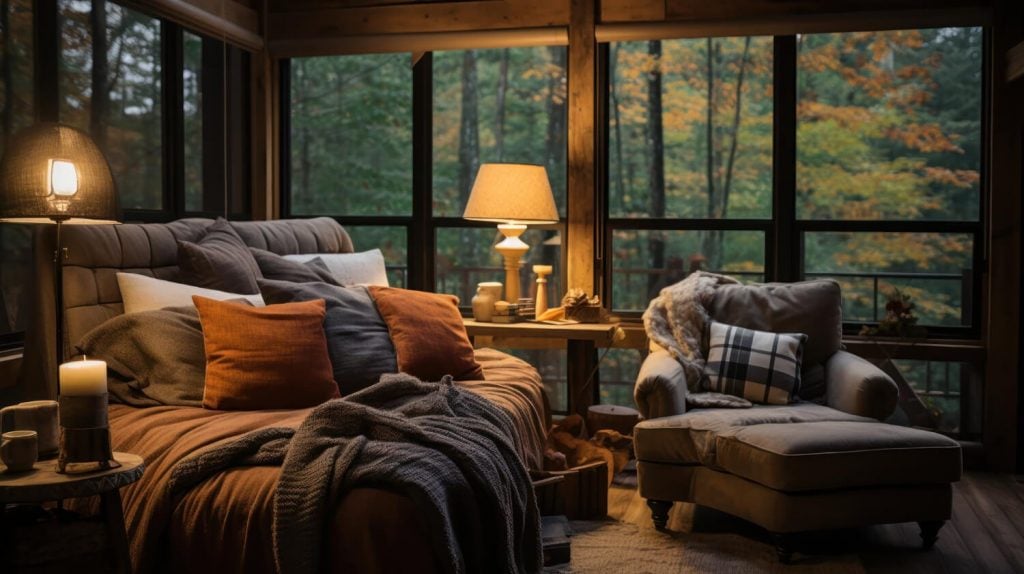Si eres anfitrión de un alquiler a corto plazo, probablemente te hayas preguntado si deberías cobrar un depósito de seguridad de AirbnbEste pequeño pero importante paso puede ofrecer protección contra daños inesperados o violaciones de las reglas.
Sin embargo, muchos anfitriones no están seguros de cuánto cobrar, cómo cobrarlo o si es necesario. Esta guía te explicará todo lo que necesitas saber para que puedas tomar decisiones informadas y seguras.
Herramientas como Hostex Puede simplificar el proceso de depósito. Sin embargo, esta es solo una de las muchas funciones potentes que ofrece.
Por solo $4.9 al mes, Hostex automatiza más de 70% de sus tareas diarias de alquiler a corto plazo, lo que le permite concentrarse en lo que más importa.

¿Qué es un depósito de seguridad de Airbnb?
Un depósito de seguridad de Airbnb es una cantidad fija que los anfitriones cobran a los huéspedes. Sirve como protección financiera en caso de daños a la propiedad o incumplimiento de las normas.
Para aclarar, esto no es un cargo adicional que se cobra inmediatamente. Airbnb podría retener el depósito como monto pendiente o autorizar un cargo solo si surgen problemas después de la estancia.
El objetivo es simple: fomentar un comportamiento responsable de los huéspedes y cubrir posibles gastos de reparación o limpieza. Si no se reportan daños, el depósito es totalmente reembolsable.
En resumen, es una protección para ambas partes. Tranquiliza a los anfitriones y, al mismo tiempo, motiva a los huéspedes a respetar la propiedad.
¿Debo exigir un depósito de seguridad?
Exigir un depósito de seguridad en Airbnb es una decisión personal. Depende de tu propiedad, tus huéspedes y tu nivel de tolerancia al riesgo.
Ventajas
- Ofrece protección en caso de daños a la propiedad.
- Alienta a los huéspedes a seguir las reglas de la casa con más atención.
- Añade un sentido de profesionalismo y responsabilidad a su listado.
Contras
- Esto puede desalentar las reservas, especialmente de huéspedes con presupuesto limitado.
- Puede dar lugar a disputas que requieren tiempo y energía para resolverse.
- Agrega pasos adicionales que podrían complicar el proceso de reserva.
Cuándo tiene sentido cobrar un depósito
- Su propiedad incluye artículos valiosos o frágiles.
- Organiza estancias más largas, grupos grandes o eventos.
- Has tenido problemas en el pasado con daños o violaciones de las reglas.
Cuándo podrías evitarlo
- Su anuncio es económico y fácil de mantener.
- Prioriza las reservas fluidas y sin fricciones.
- Confía en AirCover de Airbnb para obtener protección básica.

¿Cuánto depósito de seguridad debería cobrar?
Establecer la cantidad correcta para usted Depósito de seguridad de Airbnb Es crucial. Debe asegurarse de que sea suficiente para proteger su propiedad, pero no tan alta que disuada a posibles huéspedes. Aquí tiene un enfoque básico para ayudarle a determinar la cantidad adecuada.
Fórmula básica para establecer un depósito de seguridad
Tenga en cuenta estos factores al calcular su depósito de seguridad:
- Valor de la propiedadCuanto más valiosa sea su propiedad, mayor podría ser el depósito que deberá pagar.
- Número de invitados:Los grupos más grandes pueden aumentar la probabilidad de daños, lo que requiere un depósito más alto.
- Duración de la estancia:Las estadías más prolongadas podrían justificar un depósito mayor para tener en cuenta los posibles riesgos a lo largo del tiempo.
Ejemplos de montos de depósito:
- $100Esto es típico en propiedades pequeñas o con presupuesto ajustado. Es suficiente para cubrir daños leves o gastos de limpieza, pero lo suficientemente bajo como para fomentar las reservas.
- $250Esto es común en propiedades de gama media o casas con algunas comodidades adicionales. Es una cantidad considerable que le permite proteger su inversión sin desanimar a los huéspedes.
- $500Las propiedades más grandes o de alto valor suelen requerir este depósito. Esto refleja el mayor riesgo de daños y el mayor costo de las reparaciones.
Aunque es tentador establecer un depósito alto para mayor tranquilidad, tenga en cuenta que un depósito de seguridad demasiado alto podría disuadir a posibles huéspedes. Los depósitos excesivos pueden hacer que su anuncio parezca demasiado estricto, lo que puede llevar a los huéspedes a buscar otro alojamiento. Recuerde que el objetivo es proteger su propiedad sin que el proceso resulte incómodo ni desagradable.

Cómo establecer y cobrar un depósito de seguridad
Cobrar un depósito de seguridad para tu anuncio en Airbnb puede brindarte protección adicional contra posibles daños. Sin embargo, es fundamental comprender los métodos disponibles y sus implicaciones.
1. Método predeterminado de Airbnb
Airbnb permite a los anfitriones establecer un depósito de seguridad a través de la plataforma. Esto se hace añadiendo un "cargo adicional" en la configuración de precios de tu anuncio.
El importe del depósito se preautoriza en el método de pago del huésped al momento de la reserva. Si no se producen daños, la retención se libera después de la salida. Sin embargo, esta función no está disponible para todos los alojamientos y puede depender de factores como el tipo de propiedad y la ubicación.
2. Cobro de efectivo
Algunos anfitriones optan por cobrar un depósito de seguridad en efectivo directamente a los huéspedes. Este método requiere que los huéspedes lo entreguen al momento del check-in.
Si bien es sencillo, puede resultar engorroso y no ser ideal para todos los huéspedes, especialmente para quienes llegan tarde o provienen del extranjero. Además, el manejo de depósitos en efectivo puede generar malentendidos o disputas si no se gestiona con cuidado.
3. Herramientas de terceros
Utilizar un sistema de gestión de alquileres a corto plazo como Hostex puede agilizar el proceso de cobro de depósitos de seguridad. Este método ofrece mayor control y eficiencia en comparación con el sistema estándar de Airbnb.
Hostex se integra con plataformas de pago como Raya Para retener temporalmente la tarjeta del huésped. Este proceso es automático y puede integrarse en su flujo de comunicación con los huéspedes.
Por ejemplo, se solicita a los huéspedes que paguen el depósito antes de acceder. Información de check-in. Si no se producen daños, el depósito se reembolsará automáticamente.

Preguntas frecuentes
Cuando se trata de depósitos de seguridad, los anfitriones de Airbnb suelen tener muchas preguntas. Aquí tienes las más comunes, con respuestas claras y concisas.
¿Airbnb permite depósitos de seguridad?
Sí, Airbnb permite a los anfitriones solicitar un depósito de seguridad. Sin embargo, el proceso es limitado. En la mayoría de los anuncios, Airbnb gestiona los depósitos reteniendo temporalmente el método de pago del huésped. Sin embargo, en algunos casos, esta función podría no estar disponible. Los anfitriones no pueden cobrar depósitos directamente a través del sistema de mensajería de Airbnb, a menos que Airbnb lo admita para su tipo de anuncio.
¿Cuál es la diferencia entre un depósito de seguridad y AirCover?
AirCover es la protección integrada de Airbnb para anfitriones. Incluye cobertura por daños a la propiedad y responsabilidad civil. Sin embargo, AirCover está sujeto al proceso de reclamaciones de Airbnb, que puede tardar y requiere pruebas. Un depósito de seguridad te da un control más directo, permitiéndote resolver daños menores o infracciones de las normas con mayor eficiencia. En resumen, AirCover es un respaldo; tu depósito es tu primera línea de protección.
¿Cuándo se devuelve el depósito de seguridad?
Si no se reportan problemas, Airbnb libera automáticamente la retención tras la salida del huésped. En el caso de herramientas de terceros como Hostex, el depósito suele reembolsarse en un plazo de 3 a 7 días tras la salida, a menos que se presente una reclamación. En cualquier caso, es importante informar a los huéspedes sobre el plazo para gestionar sus expectativas.
¿Qué situaciones justifican la retención de un depósito?
Podrás reclamar parte o la totalidad del depósito en los casos de:
- Daños físicos más allá del desgaste normal
- Artículos faltantes
- Se requiere limpieza adicional debido a violaciones de las reglas (por ejemplo, fumar en interiores, traer mascotas)
- Invitados o fiestas no autorizados
Para justificar su reclamación, debe proporcionar pruebas contundentes. Esto incluye fotos con fecha y hora, capturas de pantalla de la comunicación, recibos u otra documentación. Cuanto más sólidas sean sus pruebas, más probable será que su reclamación prospere.
¿Qué pasa si un huésped se niega a pagar o disputa el depósito?
Si utiliza el sistema de Airbnb, la plataforma mediará. Deberá presentar las pruebas dentro de los 14 días posteriores a la salida o antes de la llegada del siguiente huésped, lo que ocurra primero. Si utiliza un servicio externo como Hostex, puede tener mayor control sobre el proceso, pero la transparencia y la documentación siguen siendo clave. Si un huésped rechaza o disputa el cargo, contar con pruebas detalladas respaldará su caso.



